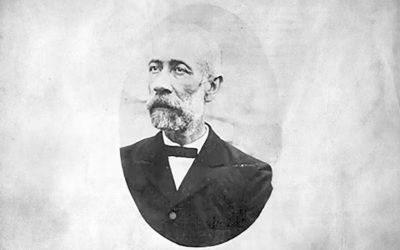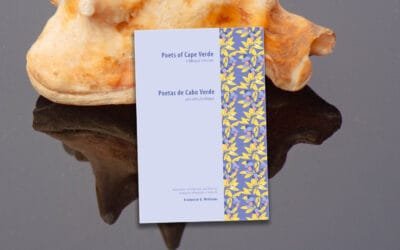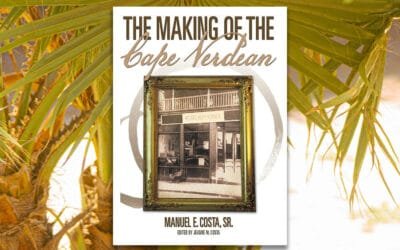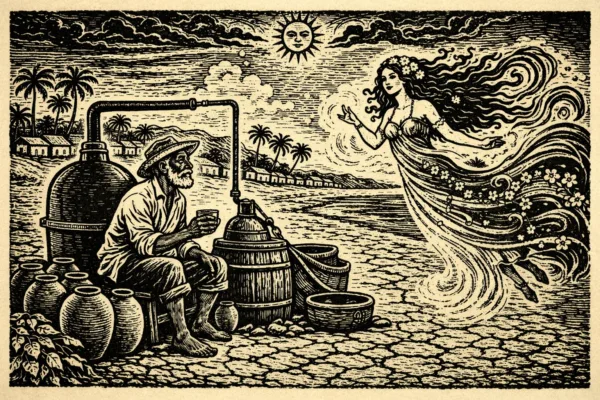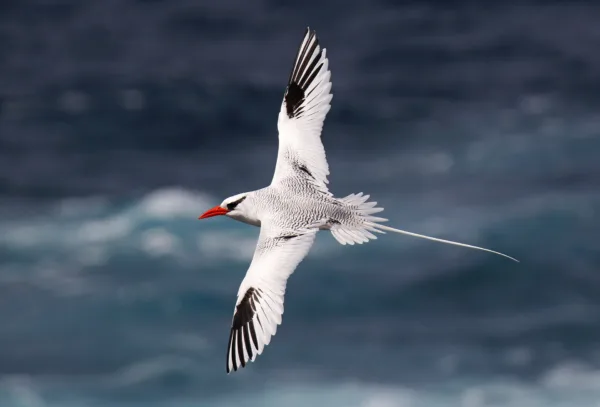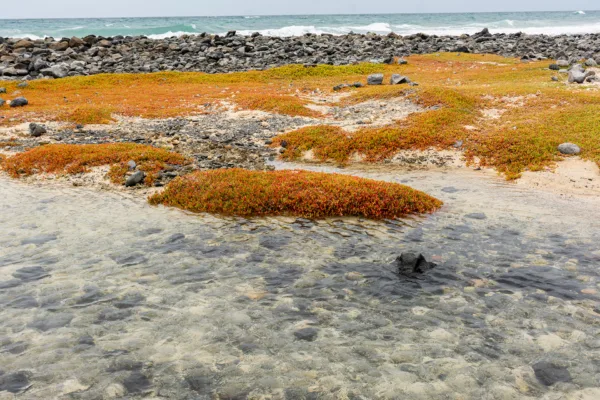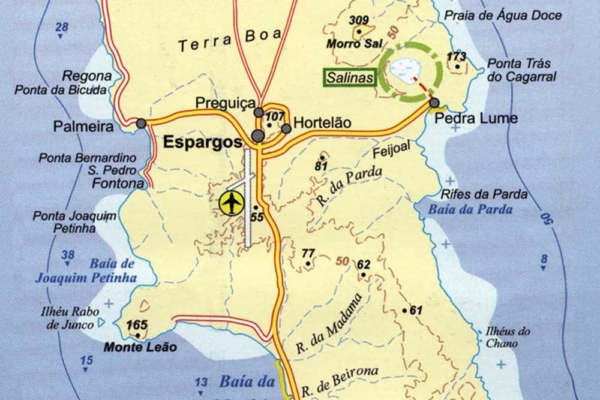Mayra Andrade: The Best Cosmopolitan Singer of Cape Verde
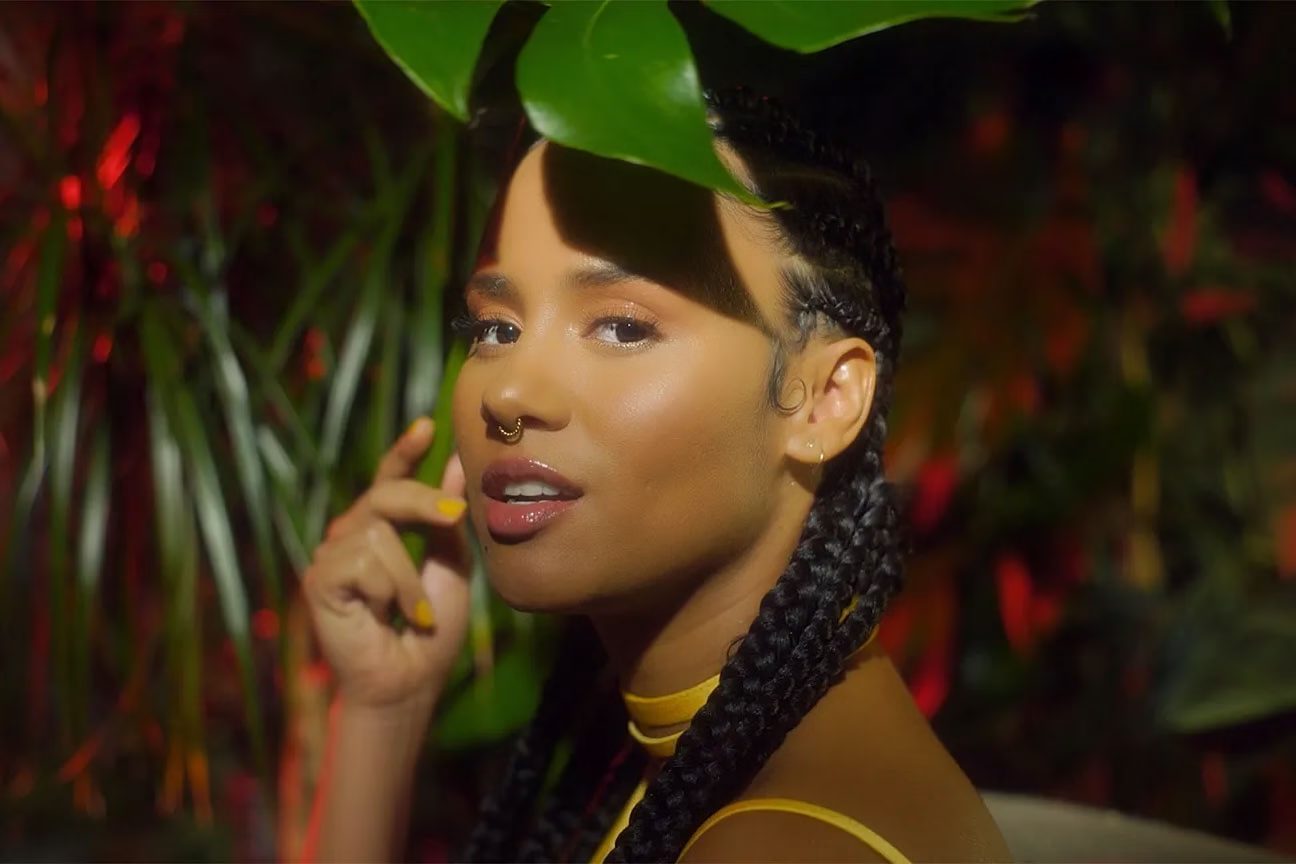
Mayra Andrade has built a global following with her blend of Cape Verdean and international sounds.
Mayra Andrade: Early Life and Nomadic Roots
Mayra Andrade was born on February 13, 1985, in Havana (Cuba) to Cape Verdean parents. Only days after her birth, the family returned to Cape Verde, but Andrade’s childhood would soon become a globe-trotting odyssey. Her father’s work as a diplomat meant she spent her formative years moving between Africa and Europe: living in Senegal, Angola and Germany, while always circling back to her Atlantic homeland for at least a couple of months each year.
“Cape Verde has 10 islands, and we usually say the 11th is the diaspora.”
Andrade mused years later. This peripatetic upbringing gave her a uniquely cosmopolitan identity from an early age. She grew up speaking multiple languages – Cape Verdean Creole and Portuguese with her family, as well as French and others abroad – and absorbing a diverse range of musical influences.
Despite the constant travel, Andrade’s connection to Cape Verde remained a bedrock. As a child, she spent long summers on the island of Santiago, her mother’s native island, where she soaked in traditional Cape Verdean culture. She fondly recalls being five or six, perched alongside an older cousin strumming Brazilian songs on a guitar in a village courtyard. Music was everywhere in her life.
“From the moment I was born, I felt like I was surrounded by the sounds of famous Cape Verdean singers like Bana, and Brazilian musicians such as Caetano [Veloso] and Milton Nascimento.”
She said of her youth. The young Mayra listened raptly to morna ballads and coladeira dances – the musical heartbeat of Cape Verde – but also to samba, jazz and chanson drifting in from abroad. In her own words:
“I don’t think I really chose music – instead, music chose me”.
This rich tapestry of cultures set the stage for Andrade’s future artistry. By her mid-teens, she had settled back in Cape Verde, and she began singing publicly and writing songs. At just 16, she entered the Jeux de la Francophonie – an international Francophone arts competition – and won the gold medal for songwriting in 2001. It was a hint of the remarkable trajectory to come. The following year, 17-year-old Andrade made a bold move to Europe’s cultural capital, Paris, to pursue music full-time.
In Paris, she formally trained in vocals and, far from home, found solace and purpose in the music of her heritage. The city’s eclectic music scene also expanded her horizons. Serendipitously, many of the first musicians she befriended in Paris were Brazilian, reconnecting her to the lusophone sounds she had loved as a child. Yet even amid Paris’s cosmopolitan swirl, Cape Verde was never far from her heart – or her work. As she has said,
“Younger generations generally grow up with a robust Cape Verdean culture at home… in a way, music creates that path that brings people back to Cape Verde”.
Mentors, Influences and Artistic Development
In Paris, Andrade crossed paths with a mentor who would strongly shape her artistic direction. It was Orlando Pantera, a visionary Cape Verdean composer. Pantera was a leading light of a new wave of Cape Verdean music, modernising traditional batuku and tabanka rhythms before his untimely death in 2001. Andrade was only a teenager when they met, but Pantera treated her like a sister, as she recalls, encouraging her to stay true to herself in music. His bold approach to using Cape Verde’s African-rooted rhythms in contemporary ways was exactly the path Andrade aspired to.
“In our culture, they like traditional music to be played just so, but Orlando dared to do what I expected to do one day: use our roots to do something new. One of the worst pains for me.”
She told The Times. Pantera’s early death, at just 33, was a devastating loss. But she kept his memory alive by performing his songs. In fact, when her career eventually took off, her debut album would feature four of Pantera’s compositions. His influence became a cornerstone of her style, helping Andrade to
“give our African side the place it deserves.”
As she has declared.
While honing her craft in Paris through her late teens, Andrade also gained exposure performing across the Lusophone world. She sang in Lisbon and back in Cape Verde’s capital, Praia, and cultural hub, Mindelo, building a reputation as a precociously talented vocalist grounded in Cape Verdean tradition. She caught the attention of established artists and producers.
During those years, she also had the extraordinary opportunity to collaborate with renowned musicians across various genres. She recorded songs with Brazilian stars Lenine and Chico Buarque. And had a duet with the legendary French chanteur Charles Aznavour. Collaborations expanded her artistic expression, from Brazilian Afro-samba to classic French balladry, and showcased her ability to bridge diverse cultural traditions.
A pivotal moment came in 2007, when Andrade was asked to open for the Grammy-winning Beninese singer Angélique Kidjo at London’s Barbican Centre. It was only her second-ever performance in the UK, yet on that prominent stage, the young Cape Verdean stole the show. The Guardian described the concert as:
“a curious, intriguing show in which a frantic veteran was matched against an effortlessly brilliant newcomer. Andrade eclipsed one of Africa’s major stars.”
Reviewers marvelled at the poise and power Andrade displayed for someone barely in her twenties. Backed by an acoustic band of Brazilian musicians, she captivated the Barbican audience with a set that swung from the gentle sway of morna to jazzy scat singing.
“For a little-known performer, she had it all – musicianship… charm and confidence.”
Wrote The Guardian, calling her debut album Navega “one of the best releases of the year”. The UK exposure was a triumph; “when she returns, she will surely be headlining,” the review predicted. Indeed, that spring, Andrade had also been named Best Newcomer at the prestigious BBC Radio 3 Awards for World Music 2008, confirming her status as a rising star on the world stage.
Mayra Andrade Recording Career Successes
By her early twenties, Mayra Andrade had built a formidable foundation through live performance and collaborations.
Navega
In 2006, at age 21, she finally captured that talent on record with her debut album Navega (meaning “Navigate” or “Sail” in Portuguese). The album was recorded in France and released on the world-music specialist label Stern’s. It immediately won international acclaim for its maturity and soul. Critics noted that if Navega sounded like the work of a “fully formed artist,” it was because Andrade had honed her craft for years prior. The record is a mellow, acoustic homage to Cape Verde’s musical heritage: mournful mornas and lilting coladeiras anchored by Andrade’s warm, caressing voice – playful and sweet, yet never cloying.
Four songs were written by Orlando Pantera, imbuing the album with the spirit of modern batuku, alongside Andrade’s own budding songwriting. Standout tracks like “Dimokransa” – a subtle critique of political chaos set to a gentle swing – and the dreamy title track “Navega” introduced audiences to Andrade’s artistry and Cape Verde’s “sodade” culture.
Navega earned the Preis der Deutschen Schallplattenkritik (German Record Critics’ Award) in 2007 and was named one of the year’s top albums by publications including The Times. It firmly established Andrade as the most promising new voice in Cape Verdean music since Cesária Évora.
Stória, stória…
Three years later, Andrade followed up with Stória, stória… (2009), her sophomore album, and proved that her success was no fluke of a debut. If Navega was steeped in traditional acoustic moods, Stória, stória… showed Andrade “has more of an international approach” in her influences.
The album was partly recorded in Brazil with producer Alê Siqueira, known for his work with Caetano Veloso, and it brought a breezy Brazilian flavour into Andrade’s Cape Verdean blend. Lush samba percussion, the deep tone of cellist Jaques Morelenbaum, and even a duet with Cuban piano virtuoso Roberto Fonseca grace the tracks.
Andrade’s voice shone in elegant mornas like “Seu” and playful jazz-inflected songs such as “Konsiensia” and “Mon Carrousel,” where she crooned in French. The record closes with “Badiu Si,” a cheerful uptempo ode to Cape Verde’s creole culture. Stória, stória… earned Andrade a second German Critics’ Award (2009).
The Guardian praised the album as “confident and sophisticated,” although it noted that the laid-back charm perhaps risked being too easygoing at times. Still, it cemented Andrade’s standing as an outstanding young talent unafraid to experiment across Lusophone and global styles.
Mayra Andrade: Discography
In the decade that followed, Mayra Andrade’s discography grew in tandem with her evolving musical explorations. Below is a summary of her major releases:
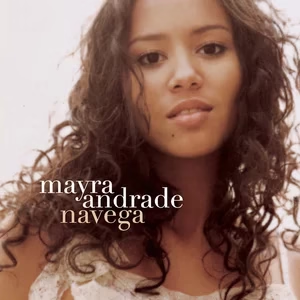
Navega (2006)
Debut studio album blending traditional Cape Verdean morna and coladeira with subtle jazz and Brazilian influences. Featured Orlando Pantera’s songs and earned international critical acclaim. Key track: “Dimokransa.”

Stória, stória… (2009)
Sophomore studio album. Embraced more Brazilian and cosmopolitan influences (recorded partly in Brazil with top Brazilian musicians) while keeping Cape Verdean acoustic roots. Featured songs in Creole, Portuguese and French. Key tracks: “Konsiensia,” “Mon Carrousel.”
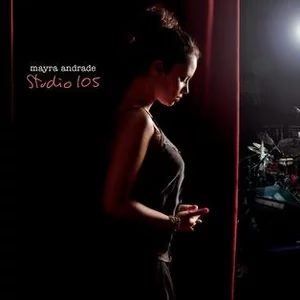
Studio 105 (2010)
Live album recorded at Radio France’s Studio 105. Captured Andrade’s intimate stage interpretations of her early songs and is often noted for its acoustic purity and the singer’s emotive delivery.
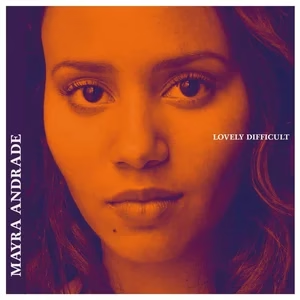
Lovely Difficult (2013)
The fourth album marked a stylistic shift to a more contemporary pop sound. A multilingual collection with songs in Creole, Portuguese, French, and English, and collaborations with writers from the U.S., Israel, France and the UK. Andrade experiments with genres such as soft rock, R&B, and reggae while retaining her Cape Verdean core. Key tracks: “We Used to Call It Love” (lead single, English), “Ilha de Santiago” (a nostalgic ode to her homeland). Nominated for Victoires de la Musique (France’s music awards) in the World Music Album category.
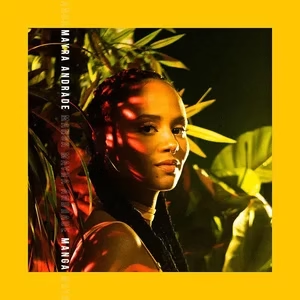
Manga (2019)
Fifth studio album, named after the Creole word for a mango – symbolising something sweet and nourishing. Recorded in Paris and Abidjan, it features an innovative mix of Afrobeats, urban rhythms and traditional Cape Verdean genres. Andrade incorporates West African pop influences, reflecting her move to Lisbon and her reconnection with Lusophone Africa. Key tracks of this album are: “Afeto”, which became a pan-African hit, “Pull Up,” and “Vapour di Imigrason” – a song she wrote as a teen about migration.
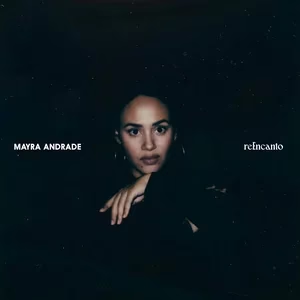
Reencanto – Live at Union Chapel (2024)
Live album capturing Mayra Andrade in concert at the historic Union Chapel in London, released in late 2024. It revisits songs from her catalogue in stripped-down live arrangements, nicely showcasing the power and intimacy in her performances. Critics noted the recording’s “raw essence,” as Andrade’s voice carries the emotional weight of morna and the playful energy of her uptempo tunes in equal measure.
Mayra Andrade Musical Style and Global Influences
Andrade’s musical style is as cosmopolitan as her upbringing. Often described as world music or Afro-lusophone folk, it in fact resists neat categorisation. At the core, she carries the torch of Cape Verde’s morna – the melancholy, guitar-led “Atlantic blues” made famous by Cesária Évora – and its upbeat cousin coladeira. “I cannot step on stage without playing a morna,” one Cape Verdean veteran has said, and Andrade too treats morna as a sacred foundation of identity.
“Morna… carries a very deep Cape Verdean sentiment – it’s like a background in my childhood.”
Andrade explains. Indeed, her earliest albums delivered textbook examples of morna’s wistful beauty, like the waltzing title track Navega, where her voice aches with the sodade (yearning) of a fisherman’s wife. But Mayra Andrade is equally a child of the wider world, and her art blends Cabo Verde with the mundo.
She grew up idolising Brazilian icons such as Caetano Veloso and Maria Bethânia, and you can hear streaks of Brazilian bossa nova and samba in her phrasing and arrangements. Jazz has also left its imprint – from the subtle scat flourishes she’ll insert into a morna live, to the sultry, horn-tinged atmospheres on some tracks.
Living in Paris introduced her to French chanson tradition and European pop, which surfaced in the form of a French ballad here or a hint of Anglo-pop melody there. The result is a style that one reviewer called “classy… charming and laid-back,” with a “host of global influences” brought to an easy-going Cape Verdean core. Andrade herself says she prefers not to dissect her influences too deliberately:
“They come out in an unconscious way. I’m trying to make music that looks like me, as instinctively as possible”.
That instinctive fusion has grown bolder over time. With her 2013 album Lovely Difficult, Andrade made a conscious departure from pure acoustic traditionalism towards a contemporary pop sensibility. The production incorporated elements of gypsy-jazz swing, soft rock, R&B and even reggae grooves.
She also opened up linguistically: whereas earlier albums were almost entirely in Cape Verdean Creole, Lovely Difficult featured her singing in English and French for the first time. For some in the world-music scene, this was a surprising move – but Andrade made it unapologetically.
“For African musicians, there’s always this pressure to be traditional.”
She said, noticing that audiences usually expect a certain “exoticism” from African artists. With branching more into pop and singing in cosmopolitan languages, Andrade asserted her artistic freedom beyond these popular expectations.
“Someone might say that I’m not traditional enough. But no one ever says to a pop singer, ‘You’re not pop enough’”.
It was a pointed statement from an artist determined to define tradition on her own terms.
On Manga (2019), Mayra Andrade went a step further, diving into the booming Afrobeats sound of the African continent’s new generation. The album’s beats draw from the urban music of Lagos and Abidjan as much as the funaná accordions of Santiago. She collaborated with young producers and even Ivorian musicians to craft a vibrant, danceable palette – all while singing in Creole and Portuguese about themes of love, identity and diaspora.
France 24 noted that Andrade “revisits traditional Cape Verdean music by adding a modern touch,” even earning her comparisons to a certain illustrious forebear: “Mayra Andrade has often been described as the new Cesária Évora” in her ability to modernise the tradition. The description is flattering, though Andrade remains very much her own artist.
What’s unmistakable is that she successfully brought Cape Verde’s music into dialogue with global trends. As Essence magazine wrote in a 2021 profile, “If you love your Afrobeats with a Cuban–Cabo Verdean touch of spice, then [Mayra] – described as the new Cesaria Evora – is one voice to keep on repeat”.
Even as she ventures into trendy genres, Andrade’s Cape Verdean DNA shines through. In a track like “Afeto” from Manga, a gently swaying funaná rhythm underpins the song’s contemporary R&B gloss. In “Vapor di Imigrason,” she resurrects a traditional coladeira style to address the modern saga of emigration – paying tribute to her own grandfather’s immigrant boat and connecting past to present.
“We are an immigrant people… immigration is something that defines us.”
She explained the song, which she had first written as a teenager. This ability to fuse today’s sounds with ancestral memory is what makes Andrade’s music so compelling across generations.
Performances, Collaborations and Notable Moments
From intimate acoustic sets to grand concert halls, Mayra Andrade has earned a reputation as a truly magnetic live performer. Her tour history reads like a world map. She has enchanted audiences from Paris’s venerable L’Olympia to New York’s Carnegie Hall and London’s Royal Albert Hall.
After her early breakout at the Barbican in 2007, Andrade indeed returned as a headliner and has since become a fixture at major festivals and venues around the globe. In the late 2000s, she supported the “barefoot diva” Cesária Évora on stage in Paris – a symbolic passing of the torch from Cape Verde’s greatest legend to its young prodigy.
She was invited to prestigious events, such as the Montreux Jazz Festival and WOMAD, where her charm and powerful voice consistently won over new fans far from her islands. A particularly emotional performance took place in 2010 in Beijing, China, where Andrade joined Cesária Évora to sing “Petit Pays” (“Little Country”), a beloved Cape Verdean ballad – two generations of Cape Verdean divas singing side by side in song.
Collaboration has always been a hallmark of Andrade’s artistry, reflecting her openness to different cultures. In addition to the studio duets with Brazilian and French icons early in her career, she has continually sought out new musical partners. On her 2013 album Lovely Difficult, she co-wrote songs with the likes of Yael Naïm (the French-Israeli pop musician) and Piers Faccini (a British singer-songwriter), enriching her songwriting with diverse perspectives. She also featured a track penned by Benjamin Biolay, one of France’s top contemporary chanson artists.
In 2011, Andrade lent her voice to a high-profile charity compilation Red Hot + Rio 2, collaborating with Brazilian ensemble Trio Mocotó on a fresh version of the bossa classic “Berimbau” – an effort that raised funds for HIV/AIDS awareness.
More recently, her embrace of Afrobeats has led her to team up with African and diaspora talent; for instance, she has performed live sessions with Cape Verdean-Portuguese producer Dino D’Santiago and remixed tracks with lusophone Afro-pop artists. One of her popular collaborations is the bilingual song “Mas Amor,” alongside rapper La MC Malcriado, which blends Cape Verdean melodies with hip-hop elements. Each collaboration has been a chance for Andrade to, as one colleague put it, “bring Cape Verde to the world and the world into Cape Verde”.
Among the most meaningful partnerships in Andrade’s life was her friendship with Cesária Évora. Cesária – the elder stateswoman of Cape Verdean song – took notice of Andrade when Mayra was still in her teens. In an interview, Cesária once named young Mayra as her likely successor, a blessing that Andrade cherishes.
“It was very important, and at 18 I did the first part of her concert.”
Andrade recalls opening for Évora, calling it a formative experience. The two singers became friends until Cesária’s passing in 2011.
“Cesária left a big gap, and a lot of sodade for what she represented, but also for who she was.”
Andrade said in tribute. On stage, Andrade has often paid homage to Évora – for example, performing Évora’s signature mornas or dedicating songs to her memory – while also carving out her own legacy distinct from “the barefoot diva.”
Cultural Identity and the Legacy of Cesária & Bana
To understand Mayra Andrade’s place in music, one must place her in the continuum of Cape Verdean cultural icons. The world’s introduction to Cape Verde’s rich musical soul came largely through Cesária Évora in the late 1980s and 1990s – her plaintive voice carrying the sorrow and resilience of a tiny islands’ nation across the globe.
Before Évora, there was Bana, the elder statesman of morna and coladeira, who from the 1960s onward had been a champion of Cape Verdean song in the diaspora (notably in Lisbon’s Cape Verdean clubs). Together, Bana and Cesária embodied the first golden generation of Cape Verdean singers on the international stage. Andrade, born in 1985, represents the next generation – one tasked with carrying that torch into the 21st century.
Cape Verdean music aficionados were quick to anoint Andrade as a natural heir. “Ever since Cesaria Evora put [Cape Verde] on the map… fans have been waiting for someone to step into her shoes,” wrote the BBC in 2008. Yet, as that commentary noted, “she’s not called the barefoot diva for nothing… there’s only one Cesaria.”
Instead, Mayra Andrade is better seen as part of what they dubbed the “Pantera generation” – a group of young Cape Verdean artists, like Tcheka and Lura, all influenced by Orlando Pantera’s contemporary take on tradition.
Still, the comparisons to Cesária Évora have been unavoidable. Andrade’s cool, languid vocal charisma “invites comparison with her celebrated compatriot,” observed The Guardian, even if their timbres differ and their life stories diverge.
In one respect, Andrade stands distinctly apart from Évora and Bana: she is truly a child of diaspora. Whereas Cesária came from Mindelo and sang of longing for departed loved ones, Andrade is one of those children who were raised abroad and have navigated hybrid identities.
“I was born in the cold climate of a western country… I am a creole of second generation who does not want to lose his identity.”
Goes a Cape Verdean poem about diaspora, lines that Andrade can relate to. She has spoken eloquently about how music helps construct a sense of belonging for diasporic youth:
“Music consciously or unconsciously creates that path that brings people back to Cape Verde.”
She says. In her songwriting, Andrade frequently explores the themes of migration and home. Songs like “Ilha de Santiago” and “Vapor di Imigrason” are narratives of those who leave and those who stay – bridging the gap between her generation and that of her grandparents. This perspective, as a modern Cape Verdean woman – proudly Cape Verdean yet globally bred – is what truly distinguishes Andrade’s artistic voice from that of the previous generation.
Some artists see Andrade as the embodiment of a new era. Cape Verdean hip-hop artist, Shokanti, described her impact succinctly:
“27-year-old Mayra Andrade stands on the shoulders of past musical luminaries like Bana and Cesária… She has brought Cape Verde to the world and the world into Cape Verde by staying true to her traditional roots and creating [a] new, innovative fusion of world sounds.”
It may be impossible to “replace” a legend like Cesária Évora, Shokanti conceded, but Andrade has proven she will have “her own legacy to fulfil”. Andrade herself is mindful of the doors opened by those before her.
“Évora opened doors for us.”
She told a journalist, explaining that Cesária’s success made the world listen to morna and coladeira – though ironically, those genteel genres were once considered the “music of the salon, music for a ‘good girl’ to sing” under colonial attitudes. In contrast, earthy batuku and funaná were looked down upon.
Andrade’s mission, building on both Évora’s path and Pantera’s innovations, has been to elevate those once-marginalised African elements of Cape Verdean culture. By bringing batuku-inspired songs to international stages, by singing in Kriolu unapologetically, by wearing her mixed heritage as a badge of pride, she is indeed carrying Cape Verdean identity forward – not as a static torch, but as a living, changing flame.

Impact on Lusophone African Music and Global Reach
Mayra Andrade’s influence extends beyond her own recordings and concerts. Along with a cohort of contemporary Cape Verdean artists (such as Sara Tavares, Lura, Nancy Vieira, and newer voices like Elida Almeida and Lucibela), she has been at the forefront of a renaissance of Cape Verdean music in the 21st century.
This nova geração blends tradition with modernity, inspiring young musicians in Luso-Africa to experiment with their roots in fresh ways. Andrade’s success demonstrated that one could sing in Creole or Portuguese and still capture the attention of cosmopolitan audiences. This phenomenon resonates with artists from Angola to Mozambique who navigate between their African heritage and global pop trends.
In Portugal, where Andrade took up residence in 2016 after spending over a decade in France, she became a key figure in the Lusophone music scene, which connects Lisbon to the former colonies. It’s not uncommon now to find Cape Verdean morna influences in the work of Portuguese and Brazilian musicians, a cultural cross-pollination to which Andrade’s collaborations have contributed.
On the world stage, Andrade has further solidified that Cape Verde – a nation of just half a million people – punches far above its weight in cultural soft power. Following in Cesária’s footsteps, she has continued to expand global awareness of Cape Verdean music and the Creole language.
Notably, even global pop superstar Madonna felt the magnetic pull of Cape Verde’s sound: in 2019, during her Madame X tour, Madonna incorporated a Cape Verdean batukadeira women’s orchestra into her show and even sang in Creole at one point. This striking choice was part of a trend Essence magazine linked in part to Cesária’s and Andrade’s influence, noting that Andrade’s vocals “found Madonna (yes, Madonna) singing in crioulo” – a sign that Cape Verde’s music had permeated the highest echelons of pop culture. While Andrade herself was not directly involved in Madonna’s production, the anecdote underscores how far the ripples of Cape Verdean music have spread in recent years, thanks to its modern ambassadors.
Andrade has also used her platform for social influence. In 2015, she became a celebrity ambassador for the United Nations “Free & Equal” campaign, advocating for LGBTQ+ rights in Cape Verde – a cause that showed her commitment to progressive change in her home society. It’s a role she approaches with the same grace she brings to music, aiming to unite and uplift people. Her voice, after all, carries beyond melody; it carries messages. Whether singing about the aching separation of families across oceans or encouraging women to be proud of their African heritage, Andrade’s art has been a vehicle for dialogue and reflection among Cape Verdeans and international audiences alike.
As of 2025, Mayra Andrade is only 40 years old – still in the prime of her creative life – yet she is already regarded as an icon of modern Cape Verdean music. She stands as both a continuation of a lineage and a revolution within it. Critics have lauded her as “the freshest crioulo voice in World music”, and her peers admire how she bridges generations.
For a world audience increasingly attuned to diverse sounds, Andrade provides an accessible entry into the musical soul of Lusophone Africa. And for Cape Verdeans, scattered across an “11th island” of diaspora, seeing one of their own conquering international stages has been a source of immense pride.
Mayra Andrade: Awards and Honours
- Jeux de la Francophonie Gold Medal (2001) – Winner, Young Songwriter category. Andrade, at 16, won first prize at this international competition in Ottawa, Canada, signalling her early talent on a global platform.
- German Record Critics’ Awards (2007 & 2009) – Preis der Deutschen Schallplattenkritik, Best World Music Album. Andrade’s first two albums each earned this respected German critics’ prize: Navega in 2007 and Stória, stória… in 2009, highlighting the exceptional quality and reception of her work in Europe.
- BBC Radio 3 Awards for World Music – Newcomer (2008) – Winner. Named the year’s best new world-music artist by the UK’s BBC Radio 3, following in the footsteps of earlier Cape Verdean winner Lura. Her live performances and Navega’s success were cited in her win.
- Songlines Music Awards (2008) – Though not mentioned above, it’s worth noting that Andrade was highly acclaimed by world-music publications like Songlines magazine early on, which shortlisted her for awards (indicative of her impact in world music circles).
- Fernandocanossa Award (Cape Verde, 2013) – Andrade has been honoured in Cape Verde for her cultural contributions (for instance, being celebrated as a national cultural ambassador, though specific awards are less documented). (This entry could include any known Cabo Verdean honours if applicable.)
- Femmes en Or – Music category (2013) – Nominee. Andrade was nominated among “Women of Gold” in France, an award recognising inspiring women in various fields, reflecting her influence beyond music into broader culture.
- Victoires de la Musique (2014) – Nominee, Best World Music Album. Her album Lovely Difficult was nominated for the top French music award, showcasing her acceptance by the Francophone music industry at large.
- UN Ambassador – Free & Equal Campaign (2015-present) – Andrade was appointed Celebrity Ambassador for the UN’s equality campaign in Cape Verde, using her fame to champion human rights and inclusivity.
- Essence ’21 Artists to Watch’ (2021) – Andrade was listed by Essence magazine as one of 21 global artists to watch, underscoring her continued relevance and growing crossover appeal well into her second decade of recording.
(Additional awards and nominations may include Cape Verde Music Awards or other Lusophone accolades if sources documented them.)
Legacy of Mayra Andrade
In a high-ceilinged music hall somewhere in Europe, when Mayra Andrade closes her eyes and sings the opening lines of a morna, you can almost feel the Atlantic breeze and the ache of saudade drifting through the room. Then, in the next breath, she might break into a Kriolu-soul rendition of an Afrobeats groove that gets the audience dancing in the aisles. This ability to authentically inhabit Cape Verde’s past while imaginatively charting its future is the essence of Andrade’s legacy in the making.
She has often said that Cape Verdean people “need music to feel free” – and through her music, she has expanded that freedom, giving new form and global voice to an island culture born of migration, mixture and resilience.
As the torchbearer after Cesária Évora and Bana, Andrade has not so much stepped into their shoes as she has walked down new roads they paved, barefoot or otherwise. In doing so, she’s become a beacon for a modern, confident Cape Verdean identity – one just as likely to be expressed in a Lisbon club or a London theatre as in a café in Mindelo. And as long as Mayra Andrade continues to navigate these waves, Cape Verde’s morna and its many stories will continue to sail on, reaching distant shores yet always calling us home.
Bibliography
- Mayra Andrade, voice of Cape Verde, Maya Jaggi, The Times (UK), 16 March 2008.
- Mayra Andrade – Awards for World Music 2008 (Newcomer Winner), Jon Lusk, BBC Radio 3, April 2008;
- Cape Verde’s Songstress, Diallo Hall, OkayAfrica, 31 Jan 2012;
- The story of Morna: Cape Verde’s music of displacement and return, B. Ramalho da Silva, Al Jazeera, 2021;
- Mayra Andrade: Stória, stória… review, Robin Denselow, The Guardian, 5 Nov 2009;
- Angélique Kidjo/Mayra Andrade review, Robin Denselow, The Guardian, 1 Oct 2007;
- Cape Verdean singer Mayra Andrade embraces afrobeats(video) +article, France24, August, 2019;
- Meet Essence’s 21 Artists to Watch in 2021, Essence Magazine;
- Mayra Andrade – Biography, Evan C. Gutierrez, AllMusic;
- Mayra Andrade and Lovely Difficult, Wikipedia;
